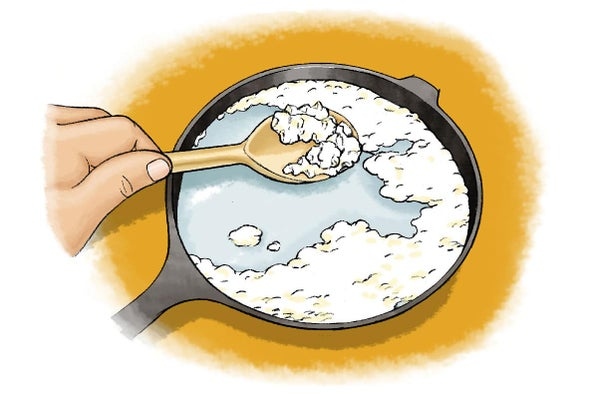If you’ve ever made a smoothie or attempted to cook with coconut milk, you’ve probably experienced the milk curdling. While it may not look appetizing, curdled coconut milk is perfectly safe to drink. So, why does coconut milk curdle and how can you prevent it?
What Is Coconut Milk?
Coconut milk is a popular dairy alternative made from the meat of a coconut. However, coconut milk can sometimes curdle, making it appear lumpy and unappetizing. It’s rich in vitamins, minerals, and healthy fats, making it a nutritious choice for those who are lactose-intolerant or following a vegan or Paleo diet. There are a few reasons why this happens, but luckily, there are also a few ways to prevent it.
The Answer Behind the Curdling
However, it can sometimes curdle when added to hot liquids. This can be frustrating and cause the milk to lose its smooth, creamy texture. Coconut milk is a popular dairy-free alternative to cow’s milk.

There are a few reasons why coconut milk may curdle. One is that the milk has been heated too quickly or at too high of a temperature. This can cause the milk to separate into its component parts, including water, fat, and protein.
The milk can start to spoil, which can cause it to curdle. Another reason coconut milk may curdle is if it’s been sitting out for too long.
Fortunately, there are a few things you can do to prevent coconut milk from curdling. One is to heat the milk slowly and at a lower temperature. You can also avoid letting the milk sit out for too long by storing it in the fridge.
If your coconut milk does curdle, don’t worry. Just strain out the curdled milk and discard it. You can still use it in recipes. The rest of the milk will be fine to use.
Getting Rid of Curdles in Coconut Milk
Coconut milk is a delicious, creamy addition to many recipes. There are a few reasons why coconut milk may curdle, but fortunately, there are also a few simple solutions. With a little troubleshooting, you can enjoy coconut milk in all of your favorite recipes without worry. However, it can sometimes curdle, leaving you with an unpleasant, lumpy mess.
Frequently Asked Questions
1. Why does coconut milk curdle?
There are a few reasons why coconut milk may curdle. One reason is that the milk has been heated too quickly or at too high of a temperature. Another reason is that the milk has been exposed to an acid, such as lemon juice or vinegar. Finally, coconut milk may curdle if it is old or has gone bad.
2. How can I prevent coconut milk from curdling?
The best way to prevent coconut milk from curdling is to heat it slowly and at a low temperature. You can also avoid adding acids to the milk. Finally, make sure to use fresh, unopened coconut milk.
3. What do I do if my coconut milk has already curdled?
If your coconut milk has already curdled, you can try to salvage it by whisking it vigorously. You can also try adding it to a recipe that calls for curdled milk, such as a cake or pudding.
4. Is it safe to consume curdled coconut milk?
Yes, it is safe to consume curdled coconut milk. However, it may not taste as good as milk that has not curdled.
5. Can I use curdled coconut milk in a recipe?
Yes, you can use curdled coconut milk in a recipe. In fact, some recipes, such as cakes or puddings, actually call for curdled milk.
Final thoughts
There are a few reasons why coconut milk might curdle, but the most common one is because it was heated too quickly. If you want to avoid this, heat the milk slowly over low heat. You can also add a bit of cornstarch to help thicken it and prevent curdling.
